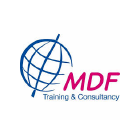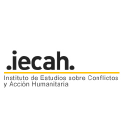ACTIONS' FINANCING MODALITIES
Depending on the category of the subject and the type of the Action to be financed, the Financial Regulation sets different working methods, known as “financing or budget management modalities”. At this regard, we can distinguish:
 Credit: EU 2012 photo credits_ECECHO Arjun Claire
Credit: EU 2012 photo credits_ECECHO Arjun Claire
When the Commission implements the action using the direct management modality, it directly performs all the budget-implementation tasks. In this case, ECHO defines the procedures to be used and signs and manages the contracts with the organizations receiving the grants
the Commission may decide to use the indirect management modality by entrusting budget-implementation tasks to a UN Agency or to an International Organisation. In this case, the entrusted organisation becomes a Commission delegatee and has the responsibility of implementing EU resources through the launch of calls for tenders and calls for proposals, it can award contracts and grants, carry out payments, etc.
In order to become a delegatee, the interested IO /UN Agency should pass through the so called Pillars Review, an ex ante assessment involving the following areas:
- Internal control
- Accounting
- External Audit
- Award of Grants
- Procurement
- Financial Instruments
- Sub-delegation
Whether UN/IOs are entrusted of budget implementation tasks, they must respect the Principle of Equivalence. This means they have to guarantee the same level of protection of EU financial interests that the Commission would guarantee if it were implementing the tasks by itself, following its own rules and procedures.
CO-FINANCING/MULTI-DONOR AND FULL FINANCING
When establishing the rate of financing for the Action, the Commission takes into account the urgency of the Action, the availability of other donors and any other relevant circumstances, having due regard to the respect of the core humanitarian principles. On the basis of these considerations, the Commission may decide to finance the Action in part or in full. The defined amount will be reported in the Article 3.2 of the Specific Grant Agreement / IMDA
In this case, the action is financed by several donors and/or financed partially by the partner's own funds. All the funds are pooled together in a way that the source of funding for a specific activity is not identifiable (funds are not earmarked).
This financing modality is defined, as Co-Financing, whether the Action is implemented by the NGOs Partners and, as Multidonor, whether the signatory of the contract is a UN/IOs.
The funds that contribute to the action are listed in the section 10.3 of the Single Form and in case of contributions from other donors, more details have to be provided in the section 10.6.
Please note that contributions in-kind made by other donors (such as volunteers, goods, equipment received for free) may not be considered as co-financing.
ECHO may finance the entire cost of the action in presence of one of the following circumstances:
- the Action is urgent;
- there is no availability of other donors ;
- the Action is considered as a priority by ECHO
In case of request for full financing, the Partner must be able to duly justify the reasons in section 10.4. of the Single Form.
REFERENCE & DOCUMENTS
NGO FRAMEWORK PARTNERSHIP AGREEMENT, ARTICLE 4.2 D)
EN
FR
DELEGATION AGREEMENT for IO, Art 1.5
ICRC
IFRC
DELEGATION AGREEMENT for UN, Art 1.5
EN
GENERAL CONDITIONS for IO, ARTICLES 2.4; 12.3-12.6; 11.3; 5.3; 19.1D)II 20.1
ICRC
IFRC
GENERAL CONDITIONS for UN, ARTICLES 2.4; 12.3-12.6; 11.3; 5.3; 19.1D)II 20.1
EN






